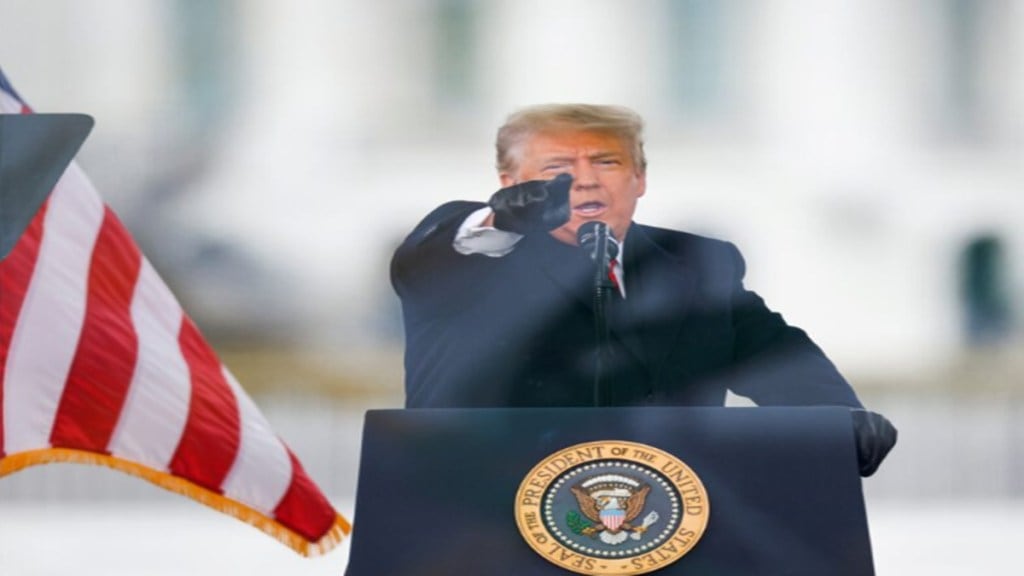Green card holders in the US are lawful permanent citizens who have the right to live and work in the country. The Green Card, as the Permanent Resident Card, is a valid identification document that verifies an immigrant’s permanent resident status in the United States. Currently, there are about 13 million lawful permanent residents or green card holders in the U.S.
Obtaining a green card is a lengthy procedure, and the wait time for certain foreign nationals, such as Indians, may go up to 100 years.
The second term of the Trump administration has sparked debate on both legal and illegal immigration, including targeting the green card holders.
Secretary of State Marco Rubio has often stated that no one is automatically eligible for a green card, and that the government will revoke a person’s green card if they engage in illegal activities while in the nation.
Green card holders can apply for US citizenship through naturalization, allowing them to become a citizen voluntarily. Eligibility typically requires being a lawful permanent resident or holding the green card for at least five years.
Trump administration has been taking several steps and measures to deport unlawful and illegal immigrants from US but even green card holders are on their radar. Here are some points green card holders needs to be aware of:
Under-Reporting Income
The US Department of Justice has asked enforcement authorities to prioritize the revocation of US citizenship and denaturalization of green card holders who have become American citizens in certain cases. Under-reporting income on a tax return is one such instance that could result in being declared a non-US citizen.
Kids of Green Card Holder
The Trump executive order has restricted automatic birthright citizenship to children with at least one US citizen or lawful permanent resident with a green card, excluding those with illegally present or temporary US parents, such as H-1B foreign workers and F-1 study visa holders.
Owning Real Estate
Ohio lawmakers are debating a bill that could restrict US green card holders and foreign nationals from purchasing land and owning properties in significant parts of the state. The legislation aims to restrict foreign entities from purchasing properties near military sites and infrastructure facilities, particularly agricultural land, as part of a broader national effort to address concerns about foreign land ownership and national security.
Marriage Frauds
Immigration lawyers warn that US citizens and green card holders are now subject to increased scrutiny during green card interviews, with adjustment-of-status and consular interviews being vetted for in-depth questioning. Officers are primarily concerned with confirming the legitimacy of the relationship and future plans.
In August 2025, the US has revised its immigration policy to provide clearer and more detailed regulations for family-based green card petitions. The US Citizenship and Immigration Services issued policy guidance in the USCIS Policy Manual, enhancing the capability to screen and vet these petitions.
Fast Track Process
The Dignity Act, proposed by US lawmakers, aims to expedite non-immigrants’ eligibility for Green Cards and lawful permanent resident status, potentially reducing the wait for the US green card. The Dignity Act proposes that individuals waiting 10 years or more in the legal immigration line can pay a premium processing fee of $50,000 (Rs 44 lakh INR) to advance in the line.
Green Card Applications
Immigrants seeking a green card in the US must apply for the Adjustment of Status process, which allows eligible noncitizens to transfer their current immigration status to Lawful Permanent Resident (LPR) status without leaving the country.
In March, the Trump administration suspended green card applications as part of an aggressive vetting exercise for certain individuals, including approved refugees, as part of a broader immigration vetting effort.
Green Card Replacement
US authorities have introduced new changes for green card holders, requiring them to use a new form, Form I-90, to replace their permanent resident cards. This has been implemented starting May 29, 2025. This change requires those filing Form I-90 to meet new requirements specified by USCIS.
Application to Register Permanent Residence or Adjust Status
USCIS has updated its policy manual to clarify that a Form I-693, signed by a civil surgeon on or after November 1, 2023, is valid only while the application is pending. Form I-693 submitted with a withdrawn or denied application becomes invalid. This guidance applies to applications pending or filed after June 11, 2025. This rule applies to all foreigners submitting ‘Application to Register Permanent Residence or Adjust Status’ while in the US.
Remittance Tax
Trump’s One Big Beautiful Bill has become law, introducing a remittance tax for immigrants, including Green card holders remitting money to home countries. The tax, initially proposed at 5%, was reduced to 3.5% by the House of Representatives and finally capped at 1% by the Senate. It will apply to money transfers made by immigrants, including Indians, after December 31, 2025.
The tax will only apply to remittance transfers where the sender provides cash, money order, cashier’s check, or similar physical instrument to the provider. The 1% remittance tax will not apply to remittance transfers involving funds withdrawn from financial institution accounts, including banks, and money transfers made using US-issued debit or credit cards, as well as money transfers using debit or credit cards.
